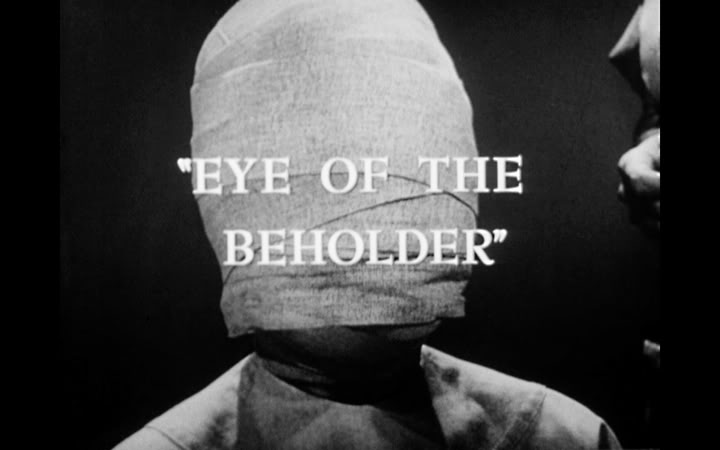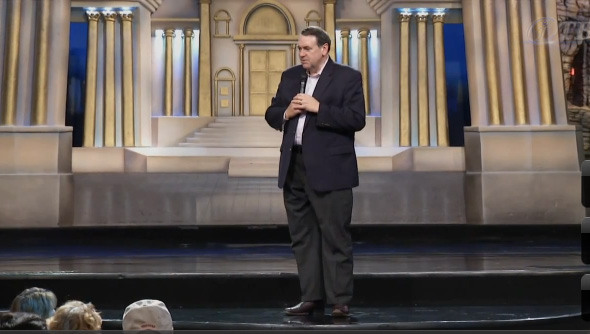A lot of the best stuff on this blog happens three comments deep. Quoth Greg:
In general, only a society committed to running on moral consensus can have a revolution in the strict sense of that word (as distinct from, say, mere rioting or revolt or secession). Other societies recognize no transcendent standard separate from the social or constitutional order as such, to which revolutionaries could appeal in opposition to that order. And a society committed to running on moral consensus will soon find, if they didn’t know it from the start, that the idea suggests at least the potential for revolution, and the constructive political uses of that potential (see Locke’s comment about “the best fence against rebellion”).
(source: Concept Art | Hang Together)
I’m too much of a Burkean not to have a large caveat on any generalization about revolution (I regard the U.S. War for Independence as an outlier precisely in its having a stronger foundation in English constitutional history than the Royalist faction in Parliament of the day could possibly have had–the “revolutionary fevers” of 1848 and 1968, Bolshevism, and even to some extent the abortive “Arab Spring,” all seem far more typical of revolutionary theory and reality, to my mind).
That to the side, it simply must be true that there can be radical improvement in a society’s power structure only when the society acknowledges some common basis for appeal beyond the regime–absolutely. It must be possible for all to recognize the difference between just and legitimate authority, however incidentally froward or unfair, and the tyrant; and to recognize who has the authority to restore justice by deposing the tyrant; and to recognize the direction for change toward a more just and legitimate authority in the aftermath. Fail any one of these, and the actions are unjust and the results detrimental to society, state, morality, and law. A chief problem of most 20th-Century democratic reasoning, in fact, is that it suppresses the possibility of one or more of these things (see under “government is the one thing we all do together” for examples).
I will point out one other thing, too: This change can only possibly be improvement when the common basis is, in fact, true–is reality itself, made intelligible and acknowledged to be so. This cannot be done when anti-realist philosophy is treated as though it were “our last, best, hope for peace.”
Greg continues with praise for “Chesterton’s Orthodoxy, a book more praised than read.” I agree, and by chance the Chesterton Club I attend monthly just did finish going through Orthodoxy (not for the first time for most of us, and not for the first time together for those who’ve been in the club longer than I). I actually find that Orthodoxy, but especially Heretics, sometimes suffers from a too-great love of antithesis and a somewhat timebound pleasure in puncturing the ironies of contemporary cant–cant contemporary to an Edwardian, that is. Our own cant sometimes has shifted enough that Chesterton’s resonant wit goes flat, like a piano with slack strings. But at moments, Chesterton is speaking directly to our day, in words that seem more relevant now than they did when he wrote them!
(And especially in the chapter I’m about to cite, Chesterton sometimes seems as though he has imbibed more Hume than is strictly hygienic, but then so did I, so there’s that.)
I’ll just pull a passage, as an example, that touches on several Hang Together themes at once (but think of this as an invitation to read promiscuously in Chesterton’s oeuvre, not a summation):
This elementary wonder, however, is not a mere fancy derived from the fairy tales; on the contrary, all the fire of the fairy tales is derived from this. Just as we all like love tales because there is an instinct of sex, we all like astonishing tales because they touch the nerve of the ancient instinct of astonishment. This is proved by the fact that when we are very young children we do not need fairy tales: we only need tales. Mere life is interesting enough. A child of seven is excited by being told that Tommy opened a door and saw a dragon. But a child of three is excited by being told that Tommy opened a door. Boys like romantic tales; but babies like realistic tales—because they find them romantic. In fact, a baby is about the only person, I should think, to whom a modern realistic novel could be read without boring him. This proves that even nursery tales only echo an almost pre-natal leap of interest and amazement. These tales say that apples were golden only to refresh the forgotten moment when we found that they were green. They make rivers run with wine only to make us remember, for one wild moment, that they run with water. I have said that this is wholly reasonable and even agnostic. And, indeed, on this point I am all for the higher agnosticism; its better name is Ignorance. We have all read in scientific books, and, indeed, in all romances, the story of the man who has forgotten his name. This man walks about the streets and can see and appreciate everything; only he cannot remember who he is. Well, every man is that man in the story. Every man has forgotten who he is. One may understand the cosmos, but never the ego; the self more distant than any star. Thou shalt love the Lord thy God; but thou shalt not know thyself. We are all under the same mental calamity; we have all forgotten our names. We have all forgotten what we really are. All that we call common sense and rationality and practicality and positivism only means that for certain dead levels of our life we forget that we have forgotten. All that we call spirit and art and ecstacy only means that for one awful instant we remember that we forget.
(source: Orthodoxy – Christian Classics Ethereal Library)



